Category: Diabetes
-
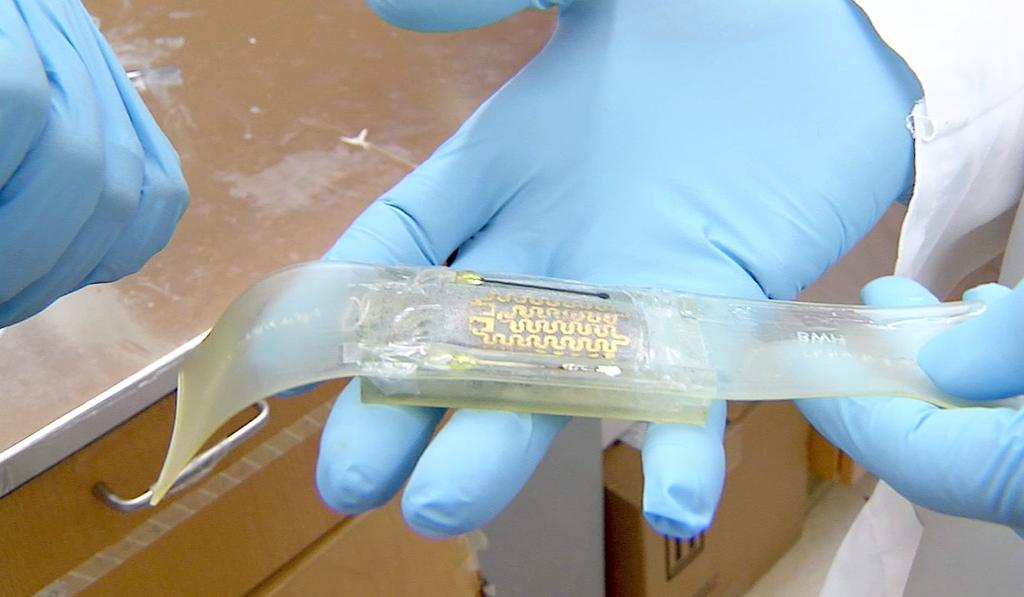
Smart bandage continuously measures pH and oxygen
Harvard professor Ali Khademhosseini, a doctor at Brigham and Women’s Hospital, is developing a smart bandage that determines a wound’s healing progress and distributes medicine accordingly. The prototype bandage looks like rubber, and has visible sensors tracking pH balance (for bacterial infection), and oxygen, automatically delivering oxygen or antibiotics topically. Diabetic foot ulcers might be better treated this…
-
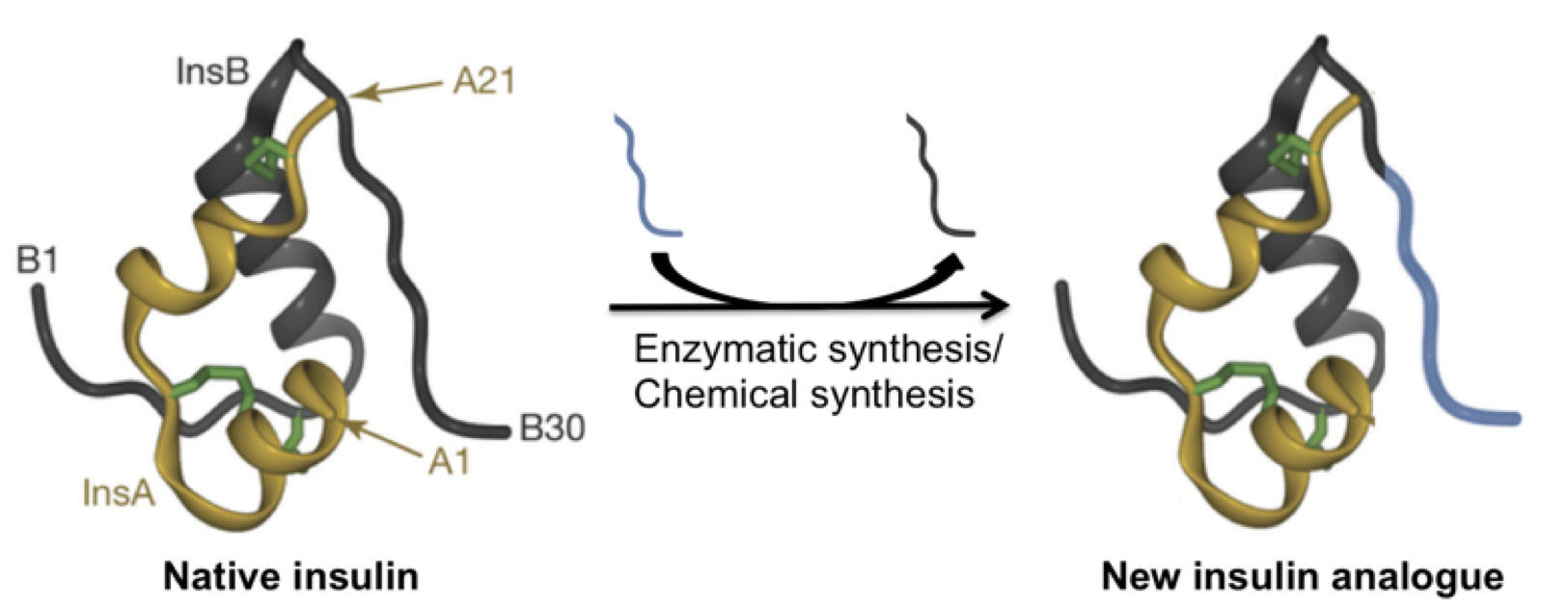
“Smart” insulin activates when blood sugar rises
University of Utah‘s Danny Chou has created Ins-PBA-F, a “smart” insulin which automatically adjusted blood sugar in mice with type 1 diabetes. In a recent study, the insulin worked for 14 hours. The team believes that it could be used in humans, which will require further research. Ins-PBA-F consists of a long-acting insulin derivative with…
-
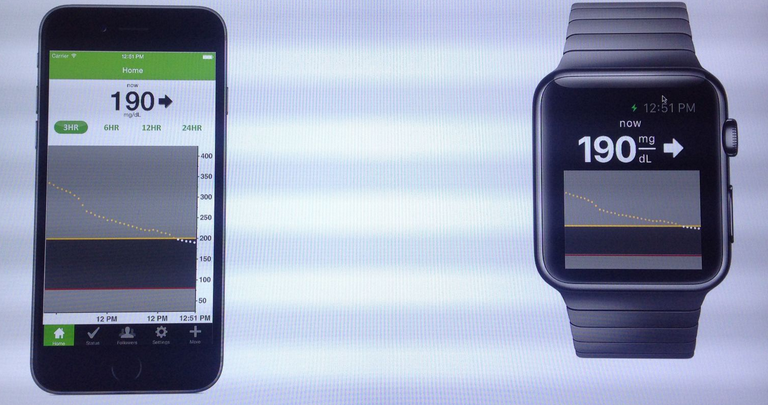
Apple watch will track glucose
The forthcoming Apple Watch will include the DexCom glucose tracking app. To use it, a tiny sensor must be placed under the skin to measure glucose levels every five minutes. Results will be displayed on the watch with a simple graph. While DexCom has FDA approval, due to recent a recent FDA clarification on wearable devices, other…
-
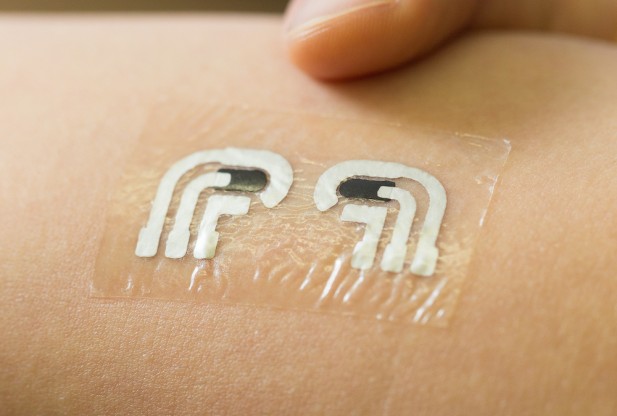
Noninvasive sensor tattoo detects glucose levels
UC San Diego professor Joseph Wang has developed an ultra-thin, flexible device that sticks to skin like a tattoo and can detect glucose levels. The sensor has the potential to eliminate finger-pricking for diabetes. The wearable, non-irritating sensor tattoo can detect glucose in the fluid just under the skin. It is based on integrating glucose extraction…
-
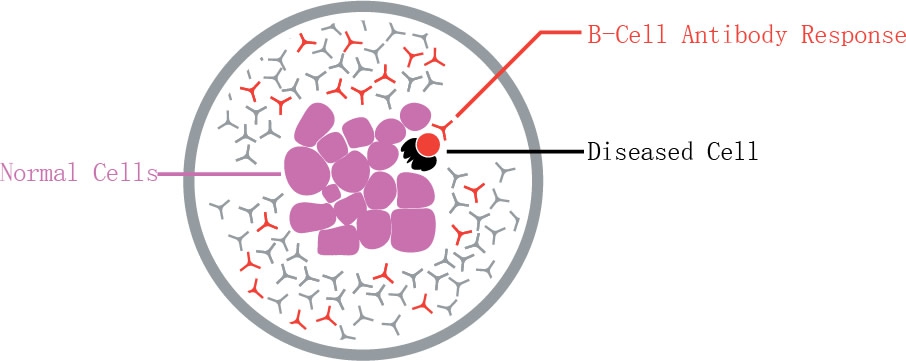
Single blood drop to detect dozens of diseases
HealthTell is another single blood drop home diagnosis device. ApplySci described Dr. Eugene Chan‘s Nokia X prize winning similar system last month. HealthTell claims to detect disease by monitoring the body’s immune response. Infection antibodies are detected with a peptide built semiconductor wafer. When a few drops of blood hit the surface, antibodies stick to the…
-
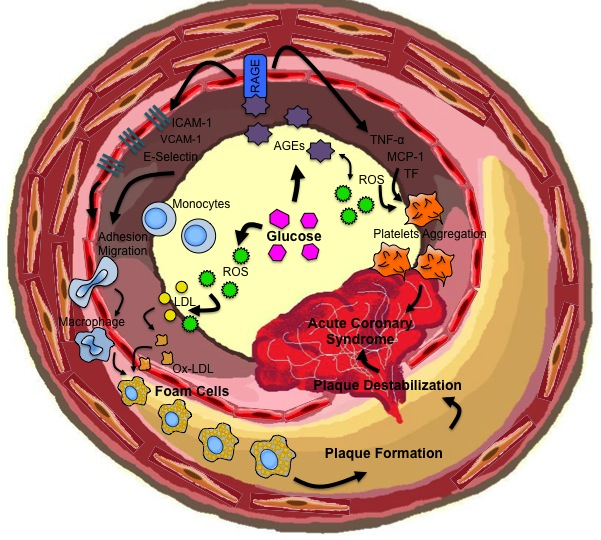
Blood vessel aging sensor detects diabetes, arteriosclerosis early
Sharp‘s prototype “Blood Vessel Aging Degree Sensor” can detect diabetes, arteriosclerosis or other diseases at an early stage. The sensor quantifies the accumulation of advanced glycation end products (protein saccharified in blood vessels known to correlate with blood glucose level). AGEs are thought to cause several diseases including diabetes, dementia, cancers, high blood pressure, and arteriosclerosis.…
-
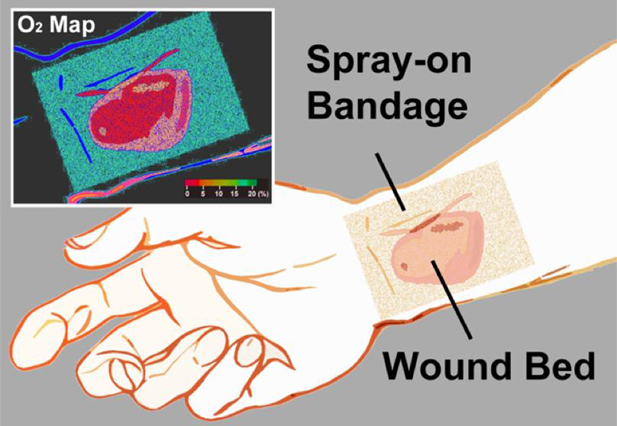
“Smart bandage” changes color as wounds heal
Harvard Medical School professor Conor L. Evans has developed a transparent liquid bandage that does not need to be removed to check oxygen levels. Its phosphors glow red when a wound isn’t getting enough oxygen, and green when it is. The glowing effect is triggered by a light source that can be captured with a smartphone camera.…
-
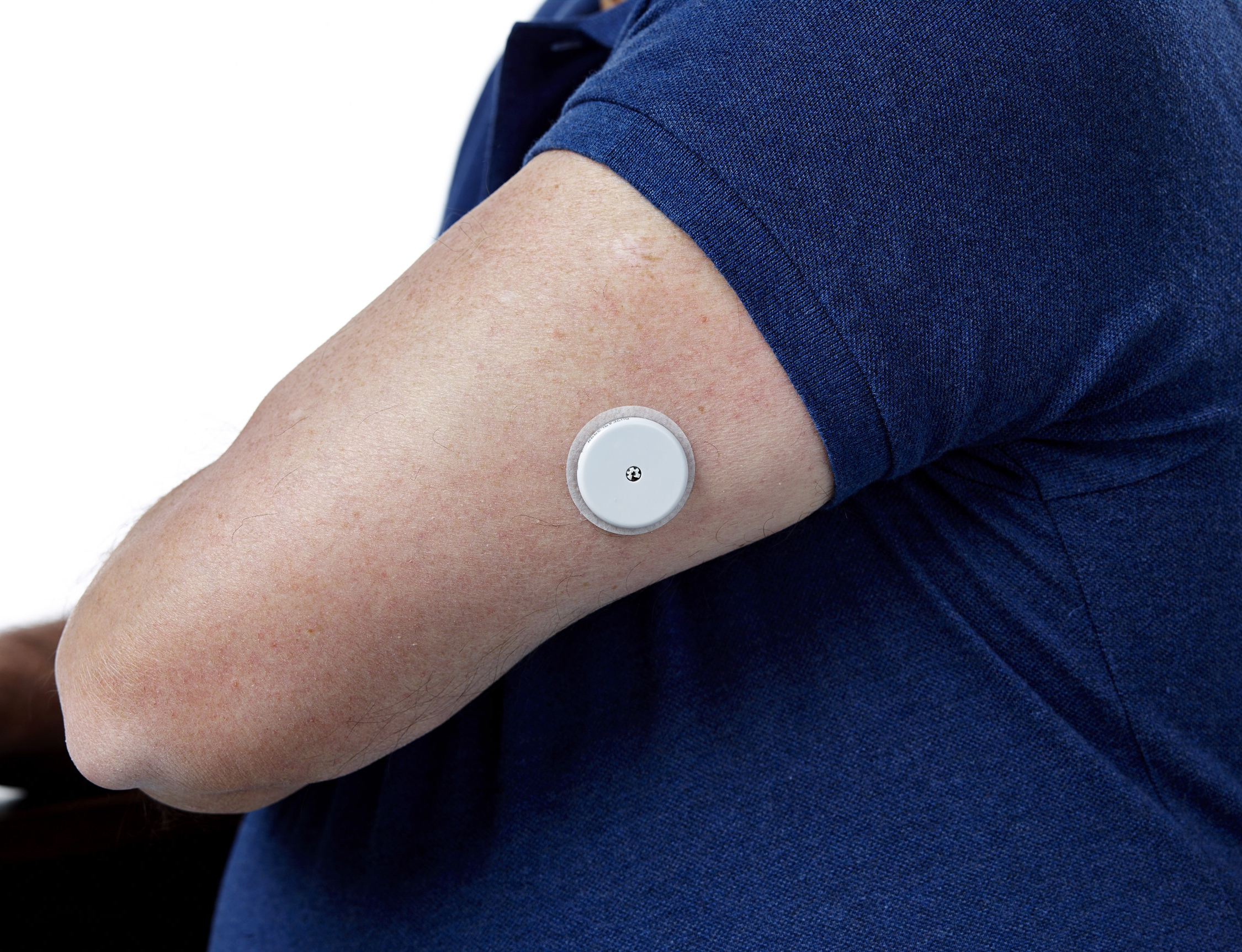
Prick-free continuous glucose monitor
Abbott’s FreeStyle Libre Flash Glucose Monitoring System eliminates finger pricking for diabetics. The insertion of a tube under the skin is required, therefore the procedure, while continuous and comfortable, is still invasive. A user wears a sensor on the back of the upper arm, and through a small tube inserted just under the skin, it measures…
-
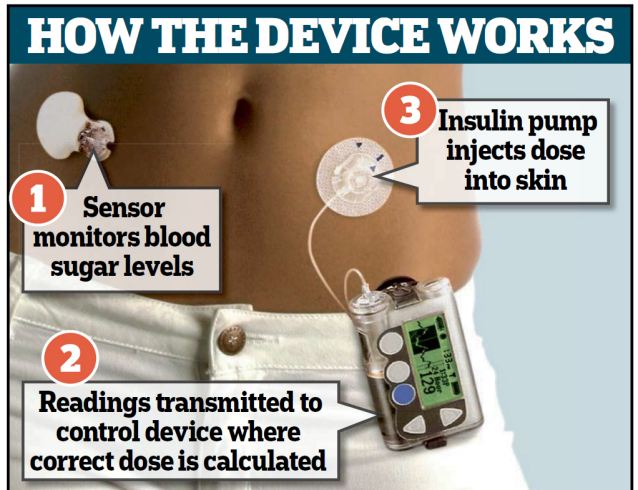
“Bionic” pancreas passes initial tests
A wearable “artificial pancreas” passed initial tests, constantly monitoring blood sugar and automatically giving insulin or a sugar-boosting drug as needed. The experimental device is being developed by Boston University professor Edward Damiano, Mass General doctor Steven Russell, and colleagues. The “bionic” pancreas improved blood-sugar control more than standard monitors and insulin pumps when tested for…
-
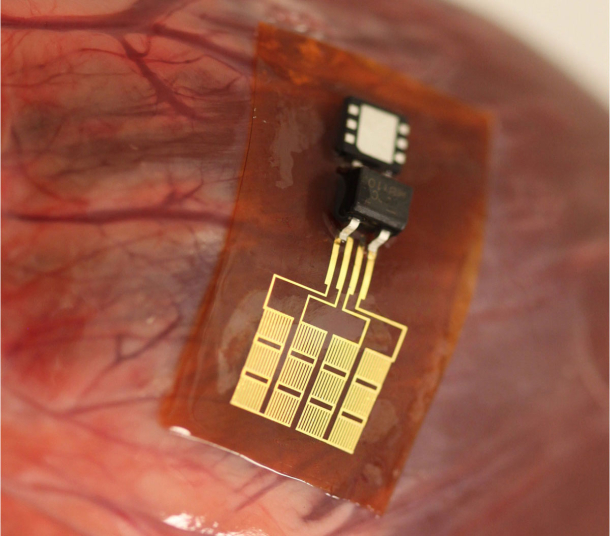
Piezoelectric nanoribbons power pacemakers
http://news.cnet.com/8301-11386_3-57617483-76/nanoribbons-let-beating-hearts-power-their-own-pacemakers/ Scientists are studying various steady energy source alternatives for small biomedical sensors, including piezoelectric power. University of Illinois researchers have attached small, flexible strips (piezoelectric nanoribbons) to internal organs of animals, and harvested energy from their movement to power pacemakers and other medical devices. Current practice depends on hard-to-change batteries. This is a minimally invasive power source,…
-
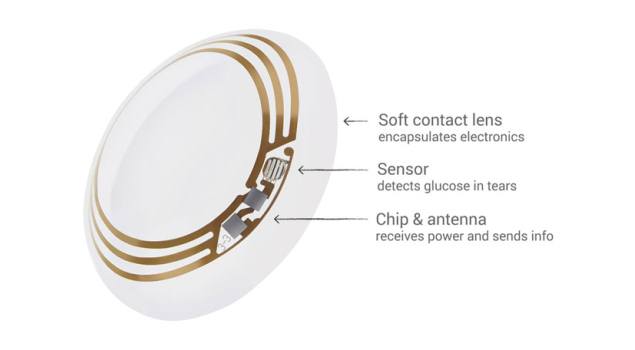
Smart contact lens prototype to monitor glucose
http://googleblog.blogspot.com/2014/01/introducing-our-smart-contact-lens.html Google is testing a smart contact lens that’s built to measure glucose levels in tears. It uses a tiny wireless chip and miniaturized glucose sensor embedded between two layers of soft contact lens material. The prototype can generate a reading once per second. They are investigating the potential of integrating tiny LED lights that…
-
Implanted nanotube sensor monitors health for up to one year
http://web.mit.edu/newsoffice/2013/new-implantable-sensor-1103.html MIT scientists are developing injectable and embeddable carbon nanotube sensors that can monitor blood sugar levels, inflammation, and other health issues. The continuous monitor can stay in a person’s body for up to a year. Researcher Nicole Iverson wrapped carbon nanotubes in DNA sensitive to nitric oxide and made two types of sensors. One is injectable…